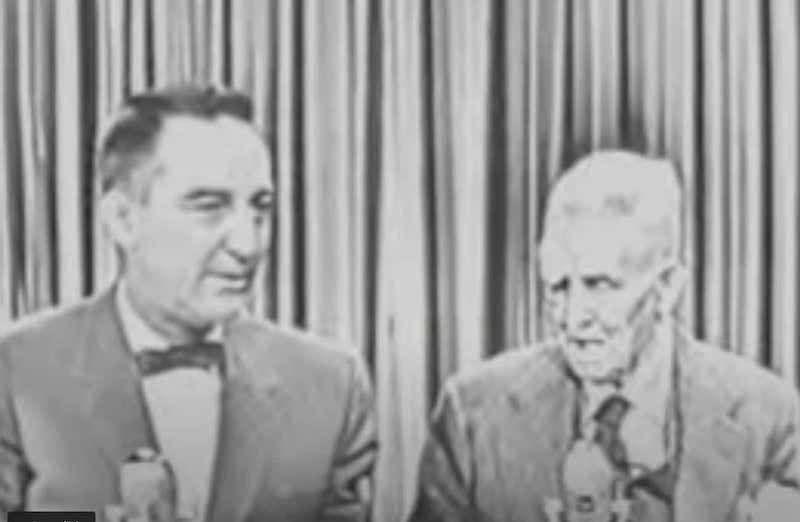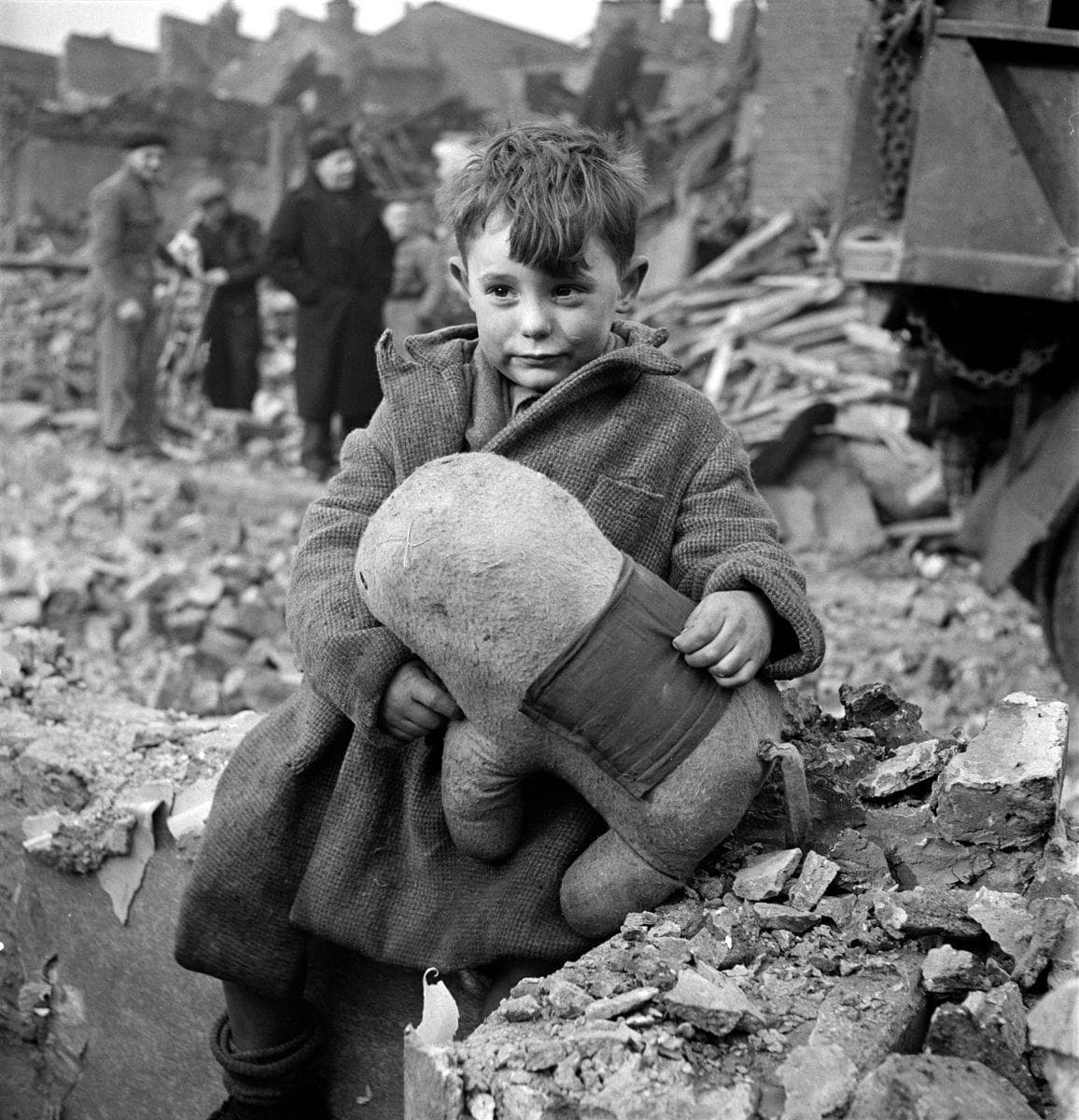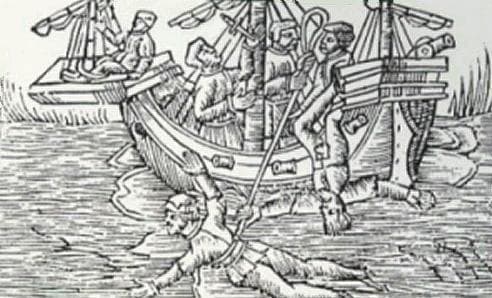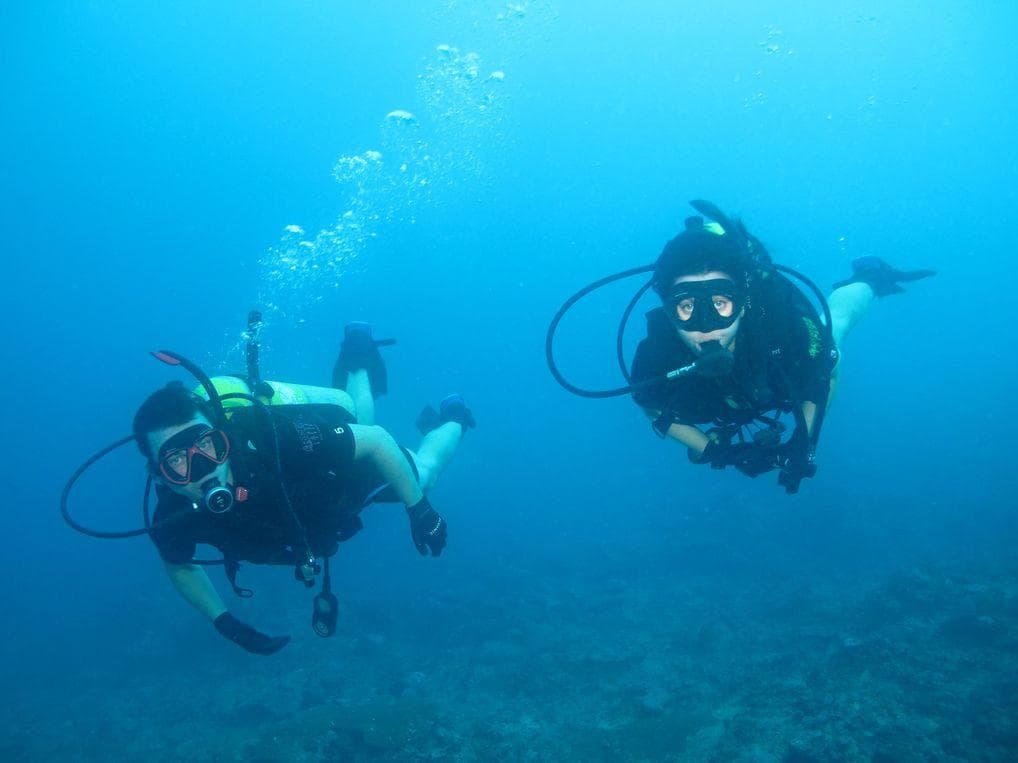-
Tariq ibn-Ziyad d.720: An Amazigh (Berber) general who converted to Islam after the Arab conquest, he later led the Muslim army which conquered Hispania.
(8th century) (Muslim military leaders) -
Abdul Rahman Al Ghafiqi: A Spanish Umayyad general born in Yemen who fought Charles Marteltwice in France in the battles of Tours and Narbonne, and was defeated in both engagements.
(8th century) (Muslim military leaders) -
Abd-ar-Rahman bin Muawiyah ad-Dakhil (731-788): Founder of the Umayyad rule in Spain, he escaped from the Abbasids in Damascus and through North Africa reached Iberia, where he used the regional dissension against Yusuf al-Fihri to his advantage and defeated him, taking control of the entire peninsula.
(8th century) (Muslim military leaders) -
Zaid ibn Ali: An Arab who fought the Banu Umayyad.
(8th century) (Muslim military leaders) -
Muhammad bin Qasim: 695–715: An early Arab General who captured Sind and Multan and parts of Punjab in Pakistan.
(8th century) (Muslim military leaders) -
Isma'il ibn Jafar: An Arab who fought the Banu Umayyad.
(8th century) (Muslim military leaders) -
Marwan II Last Umayyad Caliph and a military leader
(8th century) (Muslim military leaders) -
Qutaibah bin Muslim: An Arab Muslim general who captured Transoxiana.
(8th century) (Muslim military leaders) -
Abu Muslim, the Persian Abbasid general who toppled the Umayyad dynasty
(8th century) (Muslim military leaders) -
As-Saffah Abbasid Caliph, founder of Abbasid Dynasty and a military leader.
(8th century) (Muslim military leaders) -
Al-Mansur Abbasid Caliph and a powerful military leader.
(8th century) (Muslim military leaders) -
Al-Mahdi Abbasid Caliph and a powerful military leader.
(8th century) (Muslim military leaders) -
Harun al-Rashid the famous Abbasid Caliph and the great Muslim military leader.
(9th century) (Muslim military leaders) -
Al-Amin Abbasid Caliph and a military leader.
(9th century) (Muslim military leaders) -
Al-Ma'mun Abbasid Caliph and a military leader.
(9th century) (Muslim military leaders) -
Al-Abbas ibn al-Ma'mun Famous Abbasid Prince and a military leader.
(9th century) (Muslim military leaders) -
Al-Mu'tasim Abbasid Caliph and the powerful military leader.
(9th century) (Muslim military leaders) -
Al-Muwaffaq Abbasid Prince and a talented military leader, brother of Caliph Al-Mu'tamid.
(9th century) (Muslim military leaders) -
Al-Mu'tadid Abbasid Caliph and a powerful military leader (892-902).
(9th century) (Muslim military leaders) -
Tahir ibn Husayn d.822: A soldier of the Abbasid Empire.
(9th century) (Muslim military leaders) -
Mahmud of Ghazni 971–1030: Ruler of Ghazni.
(10th century) (Muslim military leaders) -
Abd al-Rahman III 8th Umayyad Emir of Córdoba.
(10th century) (Muslim military leaders) -
Jawhar as-Siqilli: A commander of Fatimid forces, he founded Cairo and built Al-Azhar Mosque.
(10th century) (Muslim military leaders) -
Alp Arslan
(11th century) (Muslim military leaders) -
Tughril Beg: founder of the Seljuq Dynasty.
(11th century) (Muslim military leaders) -
Yusuf ibn Tashfin: founder of the Almoravid Dynasty in the Islamic West, he secured several decisive military victories against the Christians in Al-Andalus and was able to reunify it under his rule after a period of internal fragmentation known as Muluk Al-Tawaif.
(11th century) (Muslim military leaders) -
Muhammad of Ghor
(12th century) (Muslim military leaders) -
Nur ad-Din Zangi 1118–1174: A Syrian ruler and military leader who fought in the Crusades.
(12th century) (Muslim military leaders) -
Ṣalaḥ ad-Dīn Yusuf bin Ayyub 1137-1193: He unified Egypt, Syria, and Palestine under his rule, led the Muslims to victory at the Battle of Hattin and was able to reclaim several cities from the Crusaders, especially Jerusalem.
(12th century) (Muslim military leaders) -
Saif ad-Din Ghazi I: A leader during the crusades.
(12th century) (Muslim military leaders) -
Al-Muqtafi Abbasid Caliph of Baghdad and a military leader.
(12th century) (Muslim military leaders) -
Al-Nasir Abbasid Caliph and a military leader.
(12th century) (Muslim military leaders) -
Qutb-ud-din Aybak: He built the Qutub Minar.
(13th century) (Muslim military leaders) -
Az-Zahir Abbasid Caliph and a military leader of Abbasid army.
(13th century) (Muslim military leaders) -
Al-Nasir Abbasid Caliph and a military leader.
(13th century) (Muslim military leaders) -
Shams ud-Din Iltutmish: He conquered Multan and Bengal from contesting rulers, and Ranthambhore and Siwalik from their rulers.
(13th century) (Muslim military leaders) -
Shah Jalal: Known to have propagated Islam into north-eastern Bengal after a long history of travel between the Middle East, Persia, Central Asia and South Asia.
(13th century) (Muslim military leaders) -
Razia Sultan: A Turkish princess who ruled modern-day India.
(13th century) (Muslim military leaders) -
Mu'in ad-Din Unur
(13th century) (Muslim military leaders) -
Al-Kamil: A Sunni Kurd leader.
(13th century) (Muslim military leaders) -
Baibars: The fourth Sultan of Egypt in the Mamluk Bahri dynasty, he fought Crusaders and Mongols.
(13th century) (Muslim military leaders) -
Saif ad-Din Qutuz: fought Crusaders and Mongols.
(13th century) (Muslim military leaders) -
Qalawun: fought Crusaders.
(13th century) (Muslim military leaders) -
Khalil
(13th century) (Muslim military leaders) -
Ghiyas ud din Balban
(13th century) (Muslim military leaders) -
Ala ud din Khilji: An Indian king who fought the Mongols.
(13th century) (Muslim military leaders) -
Osman Ghazi I: The founder of the Ottoman Dynasty.
(13th century) (Muslim military leaders) -
Berke Khan: A ruler of the Golden Horde
(13th century) (Muslim military leaders) -
Aybak: The founder of the Mamluk Dynasty.
(13th century) (Muslim military leaders) -
Ertuğrul: Father of Osman I and leader of the Kayi tribe who was in service of the Seljuk Sultanate of Rum.
(13th century) (Muslim military leaders) -
Ala ad-Din Kay Qubadh I The ruler of the Seljuk Sultanate of Rum who fought the Byzantines.
(13th century) (Muslim military leaders) -
Tamerlane (Taimur Lame or Timur) 1370–1405: Conqueror of the Middle East and founder of the Timurid dynasty.
(14th century) (Muslim military leaders) -
Bayezid I: The victor at the Battle of Nicopolis
(14th century) (Muslim military leaders) -
Karam Ali Alavi:Karam Ali Alavi was a 14th-century General in the Mughal army. Karam was a descendant of a 10th-century Sufi saint named Sayyid Awn Qutbh Shah Al Baghdadi. Sayyid was the direct descendant of the 4th Islamic Calipha Ali ibn Abu Talib through his son Abbas ibn Ali.Karam was renowned for his bravery in the battle field. He had led many campaigns against the Rajput kingdoms.Karam was a descendant of the famous Khilji commander Abbas Sani Alavi who led couple of successful campaigns against the Mongols.It is believed to have said Karam passed away at the age of 87 in the city of Chakwal (Modern day Pakistan) his Descendants still reside in the city of Chakwal. He is one of the famous ancestors of the Awan tribe of Chakwal.
(14th century) (Muslim military leaders) -
Zheng He 1371–1433: A Chinese mariner, explorer and admiral who was born into a Muslim family but embraced a broader ranging religious faith later.
(14th century) (Muslim military leaders) -
Hayreddin Barbarossa 1475–1546: Ottoman Admiral
(15th century) (Muslim military leaders) -
Zahiruddin Babur: Conqueror of India and founder of the powerful Mughal Empire.
(15th century) (Muslim military leaders) -
Shah Ismail I of Persia: the founder of the Safavid dynasty of Iran, ruling from 1501 to 23 May 1524 as shah (king).
(15th century) (Muslim military leaders) -
Selim I: Also known as "Yavuz Sultan Selim", he was the sultan of the Ottoman Empire and Ottoman Caliph.
(15th century) (Muslim military leaders) -
Mehmed II: Also known as "Mehmed the Conqueror", he captured the Byzantine stronghold of Constantinople.
(15th century) (Muslim military leaders) -
Sharifa Fatima: A female Zaidi chieftain of Yemen, she conquered Sa'dah.
(15th century) (Muslim military leaders) -
Chand Bibi
(16th century) (Muslim military leaders) -
Dragut: also known as "The Drawn Sword of Islam", Ottoman Naval Commander, Beylerbey, and famed Corsair
(16th century) (Muslim military leaders) -
Humayun: Second Mughal emperor.
(16th century) (Muslim military leaders) -
Isa Khan Niazi: Commander of Sher Shah Suri.
(16th century) (Muslim military leaders) -
Malik Ambar: An Ethiopian slave who became a general and challenged the might of the Mughal army.
(16th century) (Muslim military leaders) -
Sayyed Mahmud Khan: A Commander–in– Chief of the Mughal Empire.
(16th century) (Muslim military leaders) -
Sher Shah Suri: Founder the short-lived Sur Dynasty.
(16th century) (Muslim military leaders) -
Suleiman the Magnificent: also known as "Kanuni Sultan Süleyman", he was a sultan of the Ottoman Empire and Ottoman Caliph.
(16th century) (Muslim military leaders) -
Tahmasp I: He ensured the survival of the Saffavids of Persia.
(16th century) (Muslim military leaders) -
Abbas I of Persia: was the 5th Safavid Shah (king) of Iran and is generally considered the strongest ruler of the Safavid dynasty.
(16th century) (Muslim military leaders) -
Aurangzeb: Also known as Aurangzeb Alamgir, he was the 6th Mughal Emperor who expanded the Mughal Empire to its largest extent.
(17th century) (Muslim military leaders) -
Murad IV: Rejuvenated the Ottoman Empire with reforms and reconquered the city of Yerevan and Baghdad.
(17th century) (Muslim military leaders) -
Zulfiqar Khan Nusrat Jung: Son of a renowned nobleman of Emperor Aurangzeb. He held several appointments under Emperor Aurangzeb in the Mughal Empire.
(17th century) (Muslim military leaders) -
Daud Khan Panni: He was a Mughal commander, Nawab of the Carnatic and later Viceroy of Deccan. The Emperor Aurangzeb appointed him as a leading commander of the Mughal Army in 1701, while Zulfikhar Ali Khan was the Nawab.
(17th century) (Muslim military leaders) -
Nadir Shah 1688–1747: Also known as Nadir Qoli Beg and Tahmasp-Qoli Khan, he was Shah of Iran and a military leader.
(18th century) (Muslim military leaders) -
Ahmad Shah Durrani 1722–1772: He was the founder of the Durrani dynasty and is regarded as the founder of the modern state of Afghanistan. He is best known for his victory against the Maratha at the Battle of Panipat (1761).
(18th century) (Muslim military leaders) -
Hyder Ali 1722–1782
(18th century) (Muslim military leaders) -
Imam Shamil 1797–1871: An Avar (from modern-day Dagestan) who is considered both a political and religious leader for Chechens, Dagestanis, and Caucasians.
(18th century) (Muslim military leaders) -
Tipu Sultan 1750–1799): Also known as the Tiger of Mysore, he was the ruler of the Kingdom of Mysore. He fought against the British Empire and was defeated and killed at Seringapatam on 4 May 1799.
(18th century) (Muslim military leaders) -
Ahmadullah Shah 1787–1858: Led Indian rebel warriors in the Siege and Capture of Lucknow.
(19th century) (Muslim military leaders) -
Barkat Ahmad: Leading figure in the Indian Rebellion of 1857. Commander in chief of Battle of Chinhat where he led 6000 rebels and attacked the British residency in Lucknow.
(19th century) (Muslim military leaders) -
Diponegoro 1785–1855: Javanese prince who opposed the Dutch colonial rule during the Java War of 1825–1830.
(19th century) (Muslim military leaders) -
Fazl-e-Haq Khairabadi 1797–1861: Leading figure in the Indian Rebellion of 1857.
(19th century) (Muslim military leaders) -
Abd al-Qādir al-Jazā'irī 1808–1883: An Algerian militant against the French occupation.
(19th century) (Muslim military leaders) -
Mir Masjidi Khan d.1841: An Afghan resistance leader during the First Anglo-Afghan War.
(19th century) (Muslim military leaders) -
Bakht Khan: Indian Muslim commander during the Indian Rebellion of 1857.
(19th century) (Muslim military leaders) -
Husein Gradaščević: Leader of the Great Bosnian uprising.
(19th century) (Muslim military leaders) -
Muhammad Ahmad 1844–1885: A Muslim religious leader and militant in Anglo-Egyptian Sudan.
(19th century) (Muslim military leaders) -
Omar Mukhtar 1858–1931: A Libyan leader of the resistance against the Italian occupation in Libya.
(19th century) (Muslim military leaders) -
Bai Chongxi 1893–1966: A general of the Republic of China (ROC).
(19th century) (Muslim military leaders) -
Muhammad Ibn 'Abd al-Karim al-Khattabi 1882–1963: A Berber leader, he fought against the French and Spanish occupations of Northern Morocco.
(19th century) (Muslim military leaders) -
Begum Hazrat Mahal: An Indian Queen who fought for independence from the British.
(19th century) (Muslim military leaders) -
Ma Zhan'ao 1830–1886: A general of the Qing dynasty.
(19th century) (Muslim military leaders) -
Ma Anliang 1855–1920: A general of the Qing dynasty and then of the republic.
(19th century) (Muslim military leaders) -
Ma Guoliang: A general of the Qing dynasty.
(19th century) (Muslim military leaders) -
Ma Qianling 1824–1909: A general of the Qing dynasty.
(19th century) (Muslim military leaders) -
Ma Zhanshan 1885–1950: A general of the Republic of China.
(19th century) (Muslim military leaders) -
Ghazi Osman Pasha 1832–1900: An Ottoman field marshal and the hero of the Siege of Plevna.
(19th century) (Muslim military leaders) -
Fakhri Pasha 1868–1948: Commander of the Ottoman Empire army and governor of Medina from 1916 to 1919.
(19th century) (Muslim military leaders) -
Ibrahim Pasha of Egypt 1789–1848: Commander of the Egyptian army who defeated the Ottoman Empire army several times.
(19th century) (Muslim military leaders)
New Random Display Display All Items(101)









